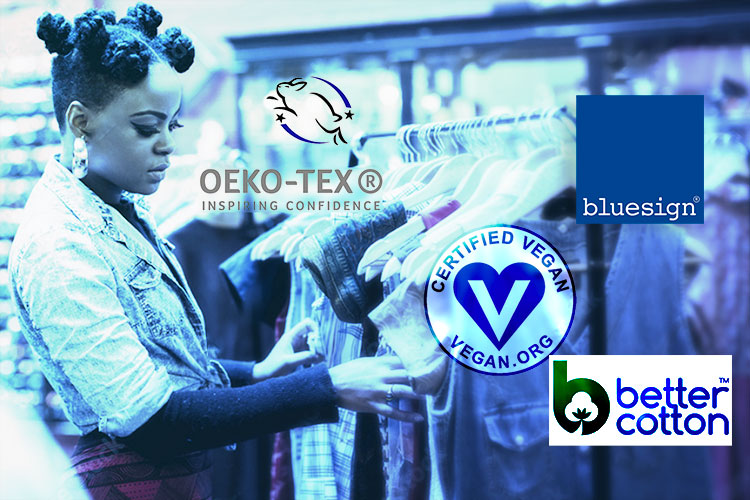–by Tori D’Amico

The problem of fast fashion is layered and exists along the entire supply chain, down to the concept itself. Switching trends week-to-week and producing merchandise to match that speed inevitably causes waste, and promotes overconsumption.
So when the best known in fast fashion put out a “green” or “eco-conscious” collection, excuse us when we don’t buy it. Recycled fabrics are great, but are they enough to offset the carbon footprint of the factory in which they are assembled? Or to fairly pay garment workers? And what happens at the end of their life cycle? Synthetic garments will sit for years in landfills slowly poisoning our earth and water.
Put simply: One “eco” collection does not a sustainable brand make.

H&M is a prime example of a company which has been highlighted for their sustainability efforts, but still fail to meet our standards. They began releasing “Conscious collections” in 2012, introducing recycled materials and plant based fabrics to their stores. They’ve also set carbon reducing goals- to be accomplished by 2040.
These marketing campaigns are seductive to customers, promising them no need to feel guilty shopping here, but only if you don’t look too close. Good On You rates H&M at “It’s A Start” for their to-be-fulfilled commitments to sustainability, but also their lack in areas like laborer rights.
Only one retailer is bigger in fast fashion than H&M: Zara. Much the same, Zara has committed to sustainable goals of going net zero by 2040. In the short term, Zara has made 50% of their products meet “Join Life” standards, which are “garments that have been produced using processes and raw materials that help us reduce our impact, such as ecologically grown cotton, TENCEL™, or recycled polyester.”
A key word here is “reduce” impact, but not eliminate. A business model their size producing new clothes on a more than weekly basis will always have a big carbon footprint, and while being net zero in 20 years sounds good, it’s just not enough.
Many fast fashion retailers “addressing” their lack of sustainability do so only through their clothing, and fail to make the same lofty commitments when it comes to issues like manufacturing and shipping. For a retailer like ASOS, 91% of the problem is related to transportation of products.
The reality is that carbon emissions need to be cut drastically now. 20 years from now is all but hypothetical.
Fully evaluating the labor standards and practices of these fast fashion brands is an issue of its own, as ethical practices are as important as sustainability. Even if these brands achieved their goals of using 100% organically grown cotton, that material is still being blended with plastic fibers, sewn by underpaid workers and flown across the world to be displayed in a store with last week’s item already on clearance. And ultimately, these companies depend on us, the consumers, throwing out their products and buying new ones to stay in business –which only adds to the landfills faster.
There is no way for fast fashion to ever truly be sustainable. A system which relies on waste cannot solve the issue it causes through plant based fabric- they need to dig deeper than that. If the CEOs of these brands want to convince consumers they are truly dedicated to improving their practices, they need to take it back to step one and rethink the practices their business is founded on. In which case, they will no longer create fast fashion, period.
Related Articles






